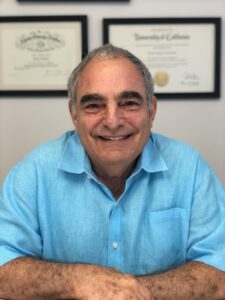Cannabis and its effect on prostate cancer

As a doctor, I am (by my own admission) a terrible patient. I rarely go for my annual checkups, and when I do get instructions, I don’t always follow them. I’ve been known to ignore the personal advice of trusted friends and family who really care about me, many of whom are also doctors!
Because I agree with recent federal reports that annual PSA (prostate cancer test) screenings are of little use and benefit, I stopped getting my PSA checked. In retrospect, I’m pretty sure some level of fear played a role in why I ignored them. It wasn’t a wise decision.
I’ve been in a lot of pain over the past year, but I’ve been putting it off to arthritis and old back injuries. Then last summer I started feeling tired, but who doesn’t from time to time? By November I was so weak that it was hard to get out of bed. I was short of breath and weak and started having pain in my lower abdomen. I actually thought I was having a bout of diverticulitis. When I finally got to my gastroenterologist and he saw how sick I was, he sent me to the emergency room. I was very worried, to say the least.
As you might have guessed, after a series of diagnostic tests, I was confirmed to have stage four prostate cancer with bone metastases in my hips, spine, pelvis, and other areas. Within an hour of being admitted to the hospital, these tests showed that my bones were invaded by tumor. My PSA level, which should be 5 or lower, was 5,900! In my forty-three years of medical practice, I have never seen a patient so elevated. I was extremely anemic and needed several units of blood. To say I was very sick is an understatement.
Prostate cancer is the most common type of cancer in men. According to statistics, 11% of men will develop prostate cancer, with African Americans being slightly more likely to get it. I was and am very lucky. I survived the immediate hospitalization and began treatment.
Under the expert care of the best cancer specialists in L.A., I was immediately put on a new combination of androgen deprivation, calcium, and vitamin D. My life was in their hands, and although I trusted them unconditionally, with my years of experience as a cannabis expert, I knew that there was one thing missing from my treatment protocol. So I took matters into my own hands.
There are many types of cancer for which cannabis is a very effective anti-tumor drug. The cannabis protocol that I regularly recommend for solid tumors consists of the molecules CBD, THC, CBD-A, and THC-A. This combination of cannabinoid oils consistently shows anti-tumor effects and should therefore be part of any cancer treatment protocol. From my patients’ experiences, it is clear that moderate doses of cannabis do indeed work very well for prostate cancer.
With that in mind, in addition to the two testosterone blockers prescribed, calcium, and vitamin D, I began taking the four cannabis oils described above on a permanent basis. Within a few short months, my PSA dropped from 5,900 to 0.8, my bone metastases disappeared, and all cancer-related pain… virtually disappeared.
My oncologist has never seen such a dramatic effect, nor has he ever seen a prostate cancer patient drop below 1. Is this a coincidence? Maybe not. I highly recommend considering these cannabinoids along with hormone therapy (or any other treatment) for prostate cancer, assuming it cannot be cured with surgery or radiation.
Cannabinoids interact with the endocannabinoid system, a major system in all mammals that is responsible for the mind-body connection and other complex physiological effects. Many substances and diseases activate our own cannabinoids (or endocannabinoids), and cannabis is a powerful modulator of this system.
Cannabis acts primarily on the cannabinoid receptors of cancer. Tumors that have a large number of receptors are more likely to respond to cannabis. (Prostate cancer has a very dense population of cannabinoid receptors.) So when cannabinoids activate receptors on tumor cells, a number of effects are triggered. These include:
- apoptosis, or “cell suicide,”
- reduction of tumor blood flow,
- activation of our endocannabinoid system, which has powerful anticancer effects,
- cannabinoids other than THC have been shown to reduce testosterone levels, thereby mimicking pharmaceutical drugs.
Given that cannabis is virtually non-toxic, any cannabinoid that has been shown to have anticancer effects should be included in the treatment regimen. Specifically for prostate cancer, if cannabis alone helps by lowering testosterone levels without any other side effects, it is certainly worth using. The anti-testosterone effects of cannabis could be very useful if standard pharmaceutical testosterone blockers ultimately fail. In addition to THC having anti-tumor effects, its use as a cancer treatment will also help with side effects such as pain, nausea, and increased appetite.
Non-psychoactive cannabinoids (CBD, THC-A, and others) have been tested even more thoroughly than cannabinoids with THC to avoid problems with the user’s psychoactivity. Personally, I think this is incomplete, and over time more studies will (and should) include THC. My theory is that most cannabinoids and many terpenes and flavonoids will be shown to have anti-cancer effects, and the use of multi-cannabinoid therapy will eventually end up with 5 or 6 or more cannabinoids.
The data certainly needs to be confirmed, but these studies should be very valuable and therefore need to be done. If we can use cannabinoid therapy alongside hormone blockade, we may just see older men become much older men!
https://www.ncbi.nlm.nih.gov/pubmed/27633508 https://www.ncbi.nlm.nih.gov/pubmed/22594963 https://www.ncbi.nlm.nih.gov/pubmed/?term=Prevalence+and+predictors+of+cannabis+use+among+men+undergoing+androgen-deprivation+therapy+for+advanced+prostate+cancer.
https://www.ncbi.nlm.nih.gov/pubmed/22557710 https://www.ncbi.nlm.nih.gov/pubmed/22594963 https://www.ncbi.nlm.nih.gov/pubmed/?term=Prevalence+and+predictors+of+cannabis+use+among+men+undergoing+androgen-deprivation+therapy+for+advanced+prostate+cancer.
https://www.ncbi.nlm.nih.gov/pubmed/22594963
https://www.ncbi.nlm.nih.gov/pubmed/?term=Proapoptotic+effect+of+endocannabinoids+on+prostate+cancer+cells.
AUTHOR
Allan Frankel, MD
Dr. Allan Frankel is one of the few physicians in the United States who truly understands cannabis as a medicine. All of the treatments he suggests have been well-researched. Every patient Dr. Frankel sees receives a personalized treatment plan that is tailored to the patient’s specific issues. Herbal medicine requires “fine-tuning” of dosage. Dr. Frankel works with his patients through a messaging portal. Using this portal allows for quick and easy follow-up contact with Dr. Frankel. There is no charge to patients for these messages, as this is how Dr. Frankel learned what he learned. Follow-up appointments are also available in person or by phone/video if needed.
Source: https://www.greenbridgemed.com/blog/cannabis-and-its-effect-on-prostate-cancer


